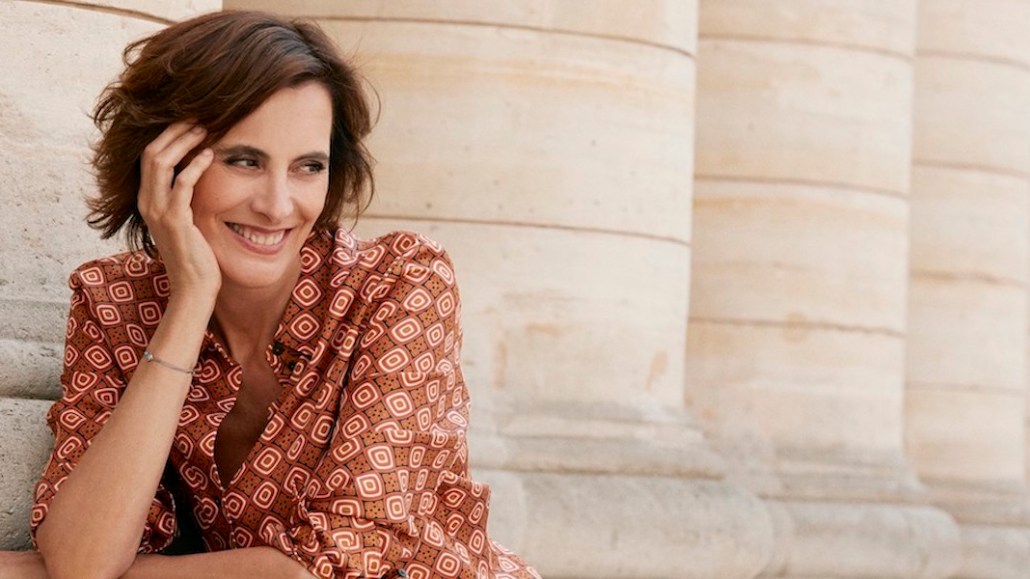Secure your place at the Digiday Publishing Summit in Vail, March 23-25
How 24 Sevres is competing on exclusives in a crowded luxury e-commerce landscape

One of the central questions facing luxury fashion brands today is: How do you balance convenience with exclusivity?
For LVMH, this is a conundrum that the company has fretted over for years as it has become increasingly clear that quick, online retail is not going away. 24 Sèvres, LVMH’s multi-brand online counterpart to its Parisian boutique Le Bon Marché, has served as the testing ground for the group’s e-commerce strategy, which has been characterized by a reticence to follow popular trends or offer discounts.
“It could significantly boost revenue if we increased our presence on the internet and in all channels, but I think we’re right not to do that. We’re very careful about brand deterioration,” said Bernard Arnault, CEO of LVMH, during a presentation with investors for the company’s 2017 year-end results
In the year since 24 Sèvres launched, the strategy for maintaining the air of exclusivity while embracing the possibilities of e-commerce has become clear: exclusive collections with prestigious designers.
The latest of these collaborations is a collection launched last week from designer and model Inès de la Fressange. Her collection includes leather goods and ready-to-wear, all sold exclusively at 24 Sèvres.
“24 Sèvres is the only online Parisian shopping destination (and partner to Le Bon Marché in Paris), so collaborating with them meant that my vision was translated exactly as I had imagined,” said de la Fressange. “It made sense to work together on this project, and our shoot day was full of laughter. I love that 24 Sèvres has become a destination for everyone who loves the Bon Marché but doesn’t necessarily live in Paris.”
These types of collaborations have been a part of 24 Sèvres’ DNA since the beginning, starting with exclusive pieces from Salvatore Ferragamo, Chloe and Marni that were available on Day 1 of the retailer’s existence.
Exclusive pieces and collections are a godsend for an online retailer looking to stand out from the crowd. Googling a product like “Balenciaga sock boots” returns results from Nordstrom, Net-a-Porter, Farfetch, Ssense, Bergdorf Goodman, Matches Fashion and Balenciaga. Consumers are faced with a glut of options for where to find their products, making competition incredibly stiff from the first step of the path to purchase.
In this context, 24 Sèvres’ focus on getting exclusive collections from hot designers makes sense. After all, there’s no competition for selling a new piece from Inès de la Fressange if 24 Sèvres is the only place where it is available.
This is where 24 Sèvres has a major advantage. Its status as LVMH’s premier online retailer means it has access to exclusive pieces and collections from the group’s most popular brands. The retailer has already sold exclusive collections from LVMH brands like Loewe, Fendi and Givenchy. Now, the retailer is expanding to include designs from brands and designers – Inès de la Fressange, for one – outside of the LVMH wheelhouse.
What is important to LVMH is that it treats the experience of shopping at 24 Sèvres as an extension of its brick-and-mortar strategy at Le Bon Marché, with the same care and feeling of prestige.
“I don’t think [online or offline shopping] is necessarily better than the other,” de la Fressange said. “I still love the experience of wandering through a great store. Nonetheless, 24 Sèvres has managed to adapt the luxury experience to online with an incredible visual experience, a beautiful selection of designers and pieces which I’m proud to join.”
More in Marketing

‘The conversation has shifted’: The CFO moved upstream. Now agencies have to as well
One interesting side effect of marketing coming under greater scrutiny in the boardroom: CFOs are working more closely with agencies than ever before.

Why one brand reimbursed $10,000 to customers who paid its ‘Trump Tariff Surcharge’ last year
Sexual wellness company Dame is one of the first brands to proactively return money tied to President Donald Trump’s now-invalidated tariffs.

WTF is Meta’s Manus tool?
Meta added a new agentic AI tool to its Ads Manager in February. Buyers have been cautiously probing its potential use cases.









